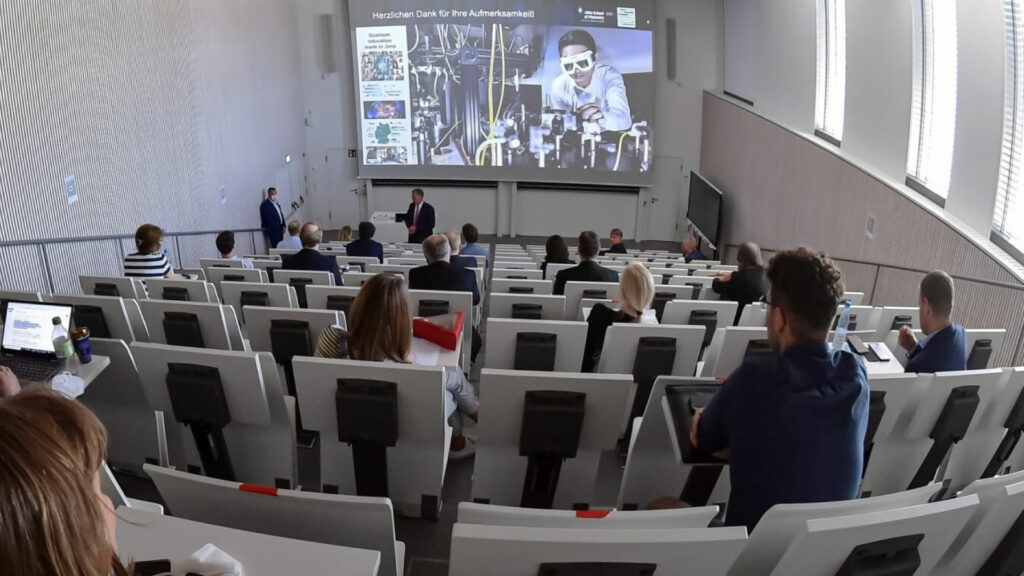Latest advancements in quantum computing technologies
Introduction
Moving on from the classic or digital computers of today, quantum computers are introduced to revolutionize technology. Based on the laws of quantum mechanics, these computers can solve complex problems. Scientists from diverse fields like medicine, physics, chemistry, etc can benefit from quantum algorithms by assessing data on a sub-atomic level. Performing calculations on qubits makes the process faster by creating multidimensional computational spaces. In 2019, Google performed a complex calculation on a quantum supercomputer which took 3 minutes and 20 seconds as compared to 10,000 years using conventional computers. Later on, IBM competed by completing the task in a thousandth of a second and keeping itself at the top.
However, many errors are yet to be addressed and performance needs more work. Following is a detailed discussion on what are the latest advancements in quantum computing technology.
1. Quantum Communications
Introducing quantum laws to communication will surely revolutionize the previous modes of conveying messages. The technology has been in use since 2007 but recent developments have advanced the process. For example, China is ahead in this game and has launched two satellites to transfer information using quantum key distribution. Moreover, the fiber optic network is also expanded to ensure secure communication across cities. Hence, information would be difficult to intercept making the process protected.
2. Quantum hardware and software
Quantum computing will take many leaps ahead of the traditional working of computer programs. There is a complete shift from circuit-based programming to quantum or a hybrid programming mode. This will combine both old and new algorithms and provide a broad avenue for calculating data. However, pure quantum hardware is not feasible at this point because of the involved complexities. They operate at extremely low temperatures and hence affect the reliability of a quantum hardware computer. Therefore, alternatives like superconductors, superpositions, and trapped ion-conductors are incorporated to begin the road to progress.

3. Quantum Education
Quantum technology is a recent phenomenon and requires academic research and expertise. Many leading universities across Europe have taken an interest in exploring the field of quantum computing and introduced new study programs in this field. It will open new career options for students and will predict the job market. Quantum learning will enhance the learning of algorithms and mitigate the drawbacks involved in this field. It will be a “second quantum revolution” according to researchers at Harvard University. Similarly, the University of Oxford, California Berkeley, and MIT fully aim to exploit the potential of quantum laws. In this way, a collaboration of renowned educational institutes will open new horizons for technology and the coming generation of students.
4. Quantum computing in Industry
Many businesses are adopting quantum computing to enhance the quality of their products and services. Especially, the electrical, nuclear, and chemical industries are substituting their previous setups with quantum computing. Companies like Mercedes-Benz aim to be carbon neutral by 2039 by incorporating quantum computing. Likewise, Mitsubishi is enhancing the fuel capacity and battery life by studying the lithium-oxide reactions. Exxon Mobil is devising quantum algorithms to ship its fuel across the globe. The Nuclear Research Organization CERN is evaluating the complex patterns of the universe for a better understanding of natural phenomena.

5. Pros and Cons
Quantum laws are intricate to study and their application in computer technology will radicalize the modern world. The data storage, understanding, and programming would be completely revolutionized. Large amounts of data including complex and twisted calculations will be solved at a much faster pace. The impact of this technology will be throughout the fields of sciences including mechanics, pharmaceutical, medicine, and engineering. There will be more precision and accuracy in data collection and prediction given the sub-atomic level of assessment.
However, there are also certain cons involved in integrating quantum computing at this level. First of all, it is not scalable and practical in normal atmospheric temperatures. It requires a special setting of low temperatures to function properly. Thus, sensitive temperatures involve greater risks and challenges for industries. Secondly, the entire process relies on qubits which are not fully equipped to produce accurate data and contain many errors. The technical engineering required to sustain qubit calculation is still not achievable. Thirdly, quantum computing is a hefty expensive venture. It can cost tens of thousands of dollars to purchase a single qubit. Lately, there are many security loopholes especially related to cryptography which can create hacking breaches.
Conclusion
The world of technology is ever-changing and innovations continue to revamp the old systems. Quantum computing will take mankind into a new realm of technological development. The progress till this year has been astounding and creates a promise for emerging technology. There are still many limitations to be overcome and new challenges involved in implementing quantum laws. However, the future holds new scope for technology that will better serve the cause of mankind.







